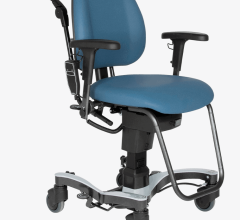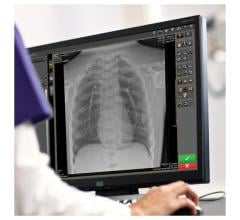November 29, 2007 - According to the findings of a Boston University Medical Center survey presented at RSNA 2007, black and Hispanic women have a different understanding of screening mammography compared with that of Caucasian women.
Researchers surveyed 1,011 women of various educational, ethnic and socioeconomic backgrounds who underwent screening mammography at Boston University Medical Center. The survey asked women questions about their understanding of mammography and their preferences regarding call-back after a suspicious finding on a screening mammogram.
The results showed that differences in ethnic background appear to influence women's preferences regarding the trade-off between recall and earlier detection of cancer. Caucasian women strongly preferred recall given the possibility of earlier detection of cancer, compared with black (African-American, Caribbean and Haitian) and Hispanic women.
Nearly one-third of black and Hispanic women thought mammography would detect more cancers than it actually does.
When asked if they would continue routine screening mammography after a false-positive result, 76 percent of Caucasian women said they would, compared to only 56 percent of black women and 48 percent of Hispanic women.
"Women's healthcare decisions and adherence to routine health screenings are affected by cultural factors, educational background and access to medical care," said the study's principal investigator, Priscilla J. Slanetz, M.D., M.P.H., associate professor of radiology at Boston University Medical Center. "Our study shows that we need to improve breast health education among minority and underserved women."
Dr. Jafri suggested that further research is necessary to address the underlying factors that influence a woman's decision to comply with screening mammography and to seek appropriate follow-up care.
"Mammography does save lives, but only when cancer is detected early," Dr. Slanetz said. "Most recalls are for benign causes and should not deter further screening."
For more information: www.rsna.org


 December 08, 2025
December 08, 2025 









